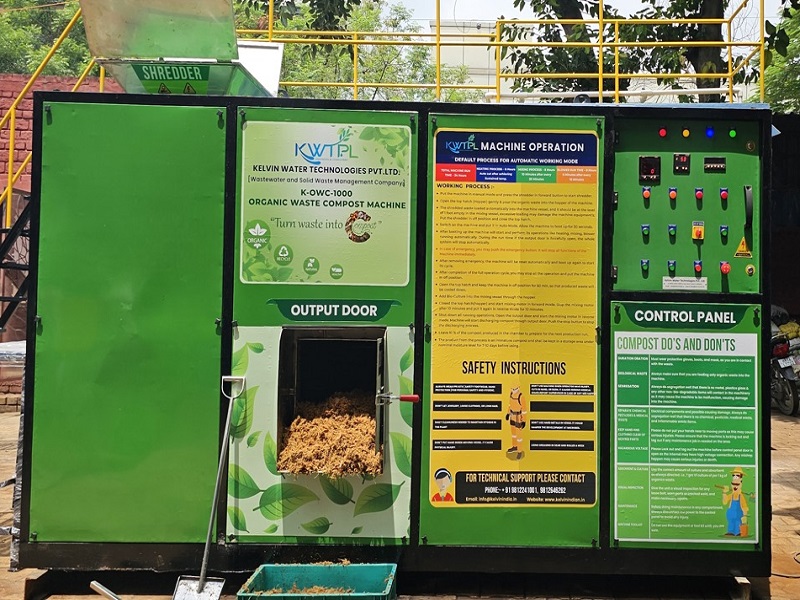
-
Water, Waste Water and Organic Waste
Management Company -

email us
info@kelvinindia.in
-

call us now
+91 9812 24 1001
A Food Waste Composter is a machine or system designed to convert organic food waste into nutrient-rich compost through biological decomposition. It accelerates the natural process of breaking down waste using microbes, heat, and moisture.
These composters are commonly used in homes, restaurants, and commercial facilities to manage food scraps, vegetable peels, and other biodegradable materials.
By reducing landfill waste and generating eco-friendly compost, food waste composters help decrease greenhouse gas emissions and promote sustainable waste management. They come in various sizes and types, including fully automatic systems that simplify the composting process.
Aerobic Composting: This method uses oxygen to break down food waste, allowing microorganisms to thrive. It involves turning the compost regularly to ensure proper aeration and decomposition. Aerobic composters are ideal for organic waste and produce high-quality compost.
Anaerobic Digestion: This technique breaks down food waste in an oxygen-free environment, using bacteria to convert organic matter into biogas (methane) and compost. It's often used in large-scale, industrial composting systems.
Vermicomposting: In this method, worms, primarily red wigglers, are used to break down organic waste. The worms consume food scraps and produce nutrient-rich compost.

1. Size and Capacity: Consider the amount of waste you generate. Larger families or commercial setups may need bigger composters, while smaller units work for individual use.
2. Location: Determine whether you need an indoor or outdoor composter based on available space.
3. Type of Waste: Choose a composter that suits the kind of waste you produce, such as kitchen scraps or garden waste.
4. Speed of Composting: If you want faster results, opt for a fully automatic or hot composter, which speeds up the process.
5. Maintenance: Select a low-maintenance model if you prefer less involvement, like turning or aerating the compost.
6. Cost: Consider your budget. Automatic composters are more expensive but efficient, while manual ones are more affordable.
7. Environmental Impact: Opt for eco-friendly models that reduce energy consumption and produce high-quality compost.
Kelvin Water Technologies is one of India's fastest-growing companies, specializing in water, wastewater treatment, and solid waste management solutions. We offer a comprehensive range of technologies and services for solid waste management, water, and wastewater treatment, catering to industries, municipalities, and commercial clients.


























